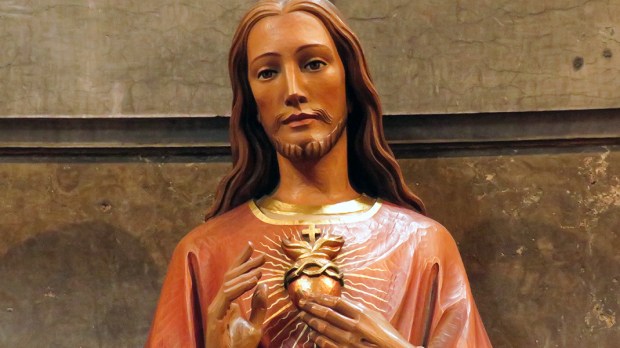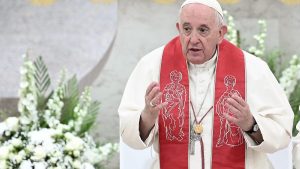Lenten Campaign 2025
This content is free of charge, as are all our articles.
Support us with a donation that is tax-deductible and enable us to continue to reach millions of readers.
“Some have questioned whether this symbol is still meaningful today.” With these words at the opening of his encyclical, the Pope anticipates the surprise of all those who will wonder why he would propose the Sacred Heart devotion, which some people perceive as dated.
However, for the Pope, it’s in fact the “heart” itself that is out of fashion these days, often neglected in favor of the intellect, the will, or the soul.
“This depreciation of the deep core of our humanity – the heart – has a much longer history. We find it already present in Hellenic and pre-Christian rationalism, in post-Christian idealism and in materialism in its various guises,” notes the Argentine pope. He also underlines how anthropology ignores it, and “great philosophical tradition finds it a foreign notion.”
Therefore, speaking of the Sacred Heart of Jesus, explains the Pope, means to “rediscover the importance of the heart,” the central dimension of the human person.
The heart, notes the Pope, “continues to be seen in the popular mind as the affective center of each human being.” The heart therefore “remains the best means of signifying the divine love of Christ, united forever and inseparably to his wholly human love,” the Pope explains.
The Sacred Heart enables us to express this incarnate, human dimension of love, both physical and spiritual, which is united in the person of Christ with the divine dimension of love.
The devotion to the Sacred Heart can prove “immensely beneficial,” he believes, by reaffirming the link between these dimensions, and explaining that he sees it as an antidote to some very common harmful attitudes afflicting the world and the Church.
Harmful Jansenist dualism
Recalling the story of St. Margaret Mary Alacoque, the pontiff recalls how devotion to the Sacred Heart of Jesus developed in response to “Jansenist rigor” that scorned the corporeal dimension of human beings and “ended up disregarding God’s infinite mercy.”
“I must warn that within the Church too, a baneful Jansenist dualism has re-emerged in new forms,” says the Pope. He believes that this form of Gnosticism has acquired “renewed strength in recent decades.”
Pope Francis also takes aim at “another kind of dualism” with this encyclical: that which affects Catholics “excessively caught up in external activities, structural reforms that have little to do with the Gospel, obsessive reorganization plans, worldly projects, secular ways of thinking and mandatory programs.”
As with neo-Jansenism, the Sacred Heart can help “appeal to today’s sensitivities” to combat this “illusory and disembodied otherworldliness,” the pontiff says.
For him, just as a human heart, a central organ, is recognizable as the “profound unifying center of the body,” so the Sacred Heart is the only symbol in which the “synthesis of the Gospel” can be found.
He explains: “As we contemplate the heart of Christ, the incarnate synthesis of the Gospel, we can, following the example of St. Thérèse of the Child Jesus, ‘place heartfelt trust not in ourselves but in the infinite mercy of a God who loves us unconditionally and has already given us everything in the cross of Jesus Christ.’”
Only he can free us
This is an important necessity in a materialistic age such as ours, notes the pontiff: “In a world where everything is bought and sold, people’s sense of their worth appears increasingly to depend on what they can accumulate with the power of money. We are constantly being pushed to keep buying, consuming and distracting ourselves, held captive to a demeaning system that prevents us from looking beyond our immediate and petty needs.”
Fortunately, he adds, “The love of Christ has no place in this perverse mechanism, yet only that love can set us free from a mad pursuit that no longer has room for a gratuitous love.”
For Francis, devotion to the Sacred Heart can therefore strengthen the Church today by making visible the “intense awareness of the love of Jesus” in personal spiritual experience, but also in community and missionary commitment.
For, as he points out in detail in this encyclical, “the teaching of the social encyclicalsLaudato Si’ and Fratelli Tutti is not unrelated to our encounter with the love of Jesus Christ.”




